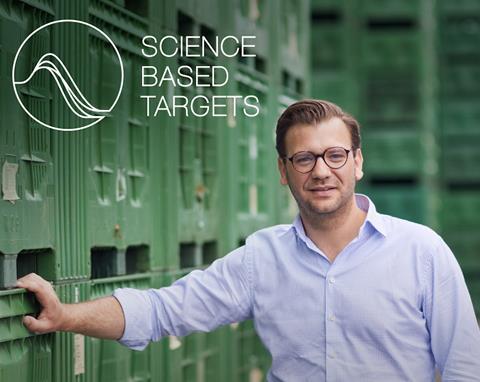Ambitious new climate targets for the entire supply chain now validated by the Science Based Targets initiative
BayWa Global Produce has announced that it has set itself new, ambitious science-based climate targets to help mitigate climate change as part of its overarching Climate Action Initiative.

The group has committed to significantly reducing its greenhouse gas emissions in both its own activities and in its supply chain (Scopes 1, 2 and 3). The new targets are aligned with the Paris Agreement to limit global warming to 1.5°C and have been validated by the Science Based Targets initiative (SBTi).
Science-based climate targets along the entire value chain
As one of the first players in the fresh produce sector to have validated science-based targets, BayWa Global Produce said it will continue to reduce its emissions together with its subsidiaries T&G Global, TFC Holland and BayWa Obst, as well as with its associated companies.
The group has set itself the target of reducing absolute Scope 1 and 2 emissions by 42 per cent by 2030 compared to its base year 2021. The targeted reduction in its Scope 1 and 3 growing activities emissions in the same period amounts to 30 per cent (“Forest, Land and Agriculture emissions”). By 2027, 90 per cent of BayWa Global Produce’s suppliers (related to their share of greenhouse gas emissions) in categories 3.1 purchased goods and services and 3.4 upstream transport and distribution, will be required to define their own science-based climate targets.
In addition, the group has committed to maintaining a no deforestation target across its primary deforestation-linked commodities and will continue to purchase 100 per cent green electricity at its international sites until 2030, which has been in place since 2020.
As part of its Climate Action Initiative, the group is also adapting to the changing climate through the likes of innovative new plant varieties and growing systems, to ensure the supply of high-quality fresh produce for global consumers and customers.
Continued reduction of the ecological footprint by building on existing climate protection measures
“Our vision is to enrich people’s lives sustainably through our activities,” said CEO Benedikt Mangold. “We are meeting this aspiration by the validation of our new climate targets through SBTi and thus seamlessly building on our previous climate protection measures.
“This once again emphasises our responsibility towards our stakeholders, because every step we take to mitigate climate change is an important step towards securing our supply chains and our long-term competitiveness.”
Whereas previous climate protection measures have mainly focused on the company’s own direct sphere of influence, such as its own sites or fleet, the validation of science-based climate targets means extending the measures to the entire value chain.
By setting the new targets, BayWa Global Produce builds on the climate protection objectives already pursued in 2018 as part of the BayWa Climate Strategy, in order to further reduce its ecological footprint together with its international subsidiaries and associated companies.
“All our activities are based on nature and its resources,” Mangold said. “That is why it is important for us to take responsibility and to support the ambitious measures of our farmers and our customers, because successfully protecting the climate can only be achieved if the entire value chain works together.”



